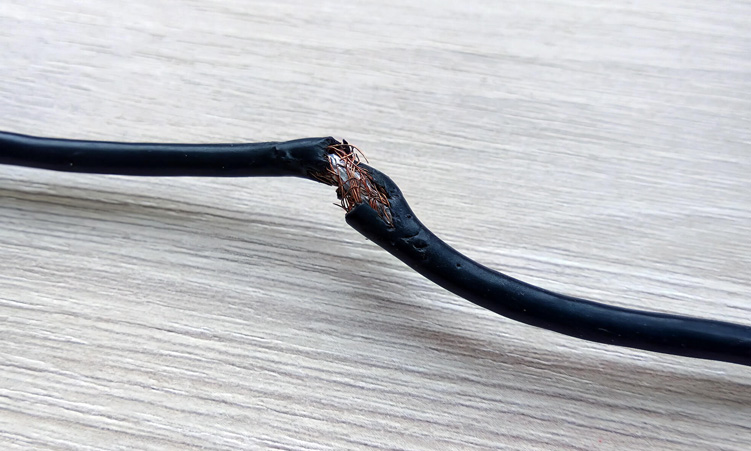HOUSTON – Two US corporate criminals, whose names became synonymous with fraud and greed that cost shareholders billions of dollars, heard jail doors clang on Tuesday.
Former Enron chief financial officer Andrew Fastow and WorldCom founder and former chief executive Bernard Ebbers are among the last former corporate superstars to be punished for their roles in scandals that rocked the public’s faith in business and investment. Fastow, 44, the former Enron CFO involved in a fraud scheme that forced the 2001 collapse of the energy trading company, the biggest bankruptcy in US history at the time, was sentenced Tuesday to six years in prison in Houston, Texas.That was four years less than the maximum sentence allowed because he struck a plea deal with prosecutors to help in their investigations.Ebbers, 65, arrived at a minimum-security prison in Oakdale, Louisiana, to serve a 25-year sentence for his role in an US$11 billion fraud at telecom company WorldCom.His sentence is one of the stiffest in recent memory in a white-collar crime case and reflects the effort to crack down on corporate misconduct in the wake of the scandals at Enron, WorldCom and other companies that roiled financial markets and prompted legislative reforms.Billions of dollars were lost in the post-millennial boom where once-heralded companies fell like dominos.Tens of thousands lost their jobs and their life savings.Ebbers, once a high-flyer who graced the covers of magazines and dined with the president in the glory days of the Internet boom, covered up his telecom empire’s faltering finances.The WorldCom CEO resigned in April 2002 after admitting borrowing money from the firm to hide losses he incurred in buying its shares.Shareholders lost about US$180 billion in WorldCom’s collapse, and 20 000 workers lost their jobs after the company went bankrupt.Enron chief financial officer Fastow lined his own pockets while crafting arcane financial structures to hide billions of dollars in company losses, which, when revealed, resulted in Enron’s collapse with US$40 billion in debt in 2001.It was the first major scandal to rock Wall Street and the bankruptcy, then the largest in history, undermined public confidence in corporations.Fastow choked back tears Tuesday as he told a Houston judge he despaired over the pain and suffering he had caused.He said he accepted his punishment “without bitterness.””I cannot undo the harm I have caused,” Fastow told the court, adding that he was ashamed of what he had done.Fastow pleaded guilty after prosecutors pursued his wife for her role in hiding their ill-gotten gains.While she served a year in prison, Fastow spent more than 1 000 hours with prosecutors to untangle a web of schemes and false statements, prosecutor John Hueston told the court.His testimony and evidence proved critical in proving the involvement and obtaining the convictions of Enron founder Kenneth Lay and chief executive Jeffrey Skilling, Hueston told the court.”He allowed the United States to bring jurors inside the executive suite,” the prosecutor said.Enron founder Lay, 64, died of a heart attack in July while awaiting sentencing.He proclaimed his innocence to the end and his family is trying to have his conviction overturned.Skilling, who is appealing his conviction, will be sentenced on October 23 and faces up to 185 years in jail.Nampa-AFPFastow, 44, the former Enron CFO involved in a fraud scheme that forced the 2001 collapse of the energy trading company, the biggest bankruptcy in US history at the time, was sentenced Tuesday to six years in prison in Houston, Texas.That was four years less than the maximum sentence allowed because he struck a plea deal with prosecutors to help in their investigations.Ebbers, 65, arrived at a minimum-security prison in Oakdale, Louisiana, to serve a 25-year sentence for his role in an US$11 billion fraud at telecom company WorldCom.His sentence is one of the stiffest in recent memory in a white-collar crime case and reflects the effort to crack down on corporate misconduct in the wake of the scandals at Enron, WorldCom and other companies that roiled financial markets and prompted legislative reforms.Billions of dollars were lost in the post-millennial boom where once-heralded companies fell like dominos.Tens of thousands lost their jobs and their life savings.Ebbers, once a high-flyer who graced the covers of magazines and dined with the president in the glory days of the Internet boom, covered up his telecom empire’s faltering finances.The WorldCom CEO resigned in April 2002 after admitting borrowing money from the firm to hide losses he incurred in buying its shares.Shareholders lost about US$180 billion in WorldCom’s collapse, and 20 000 workers lost their jobs after the company went bankrupt.Enron chief financial officer Fastow lined his own pockets while crafting arcane financial structures to hide billions of dollars in company losses, which, when revealed, resulted in Enron’s collapse with US$40 billion in debt in 2001.It was the first major scandal to rock Wall Street and the bankruptcy, then the largest in history, undermined public confidence in corporations.Fastow choked back tears Tuesday as he told a Houston judge he despaired over the pain and suffering he had caused.He said he accepted his punishment “without bitterness.””I cannot undo the harm I have caused,” Fastow told the court, adding that he was ashamed of what he had done.Fastow pleaded guilty after prosecutors pursued his wife for her role in hiding their ill-gotten gains.While she served a year in prison, Fastow spent more than 1 000 hours with prosecutors to untangle a web of schemes and false statements, prosecutor John Hueston told the court.His testimony and evidence proved critical in proving the involvement and obtaining the convictions of Enron founder Kenneth Lay and chief executive Jeffrey Skilling, Hueston told the court.”He allowed the United States to bring jurors inside the executive suite,” the prosecutor said.Enron founder Lay, 64, died of a heart attack in July while awaiting sentencing.He proclaimed his innocence to the end and his family is trying to have his conviction overturned.Skilling, who is appealing his conviction, will be sentenced on October 23 and faces up to 185 years in jail.Nampa-AFP
Stay informed with The Namibian – your source for credible journalism. Get in-depth reporting and opinions for
only N$85 a month. Invest in journalism, invest in democracy –
Subscribe Now!










